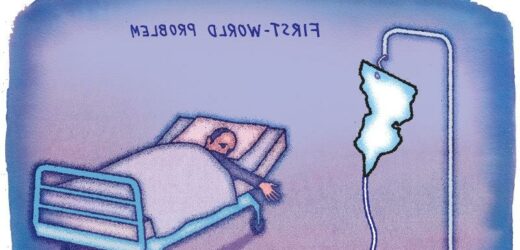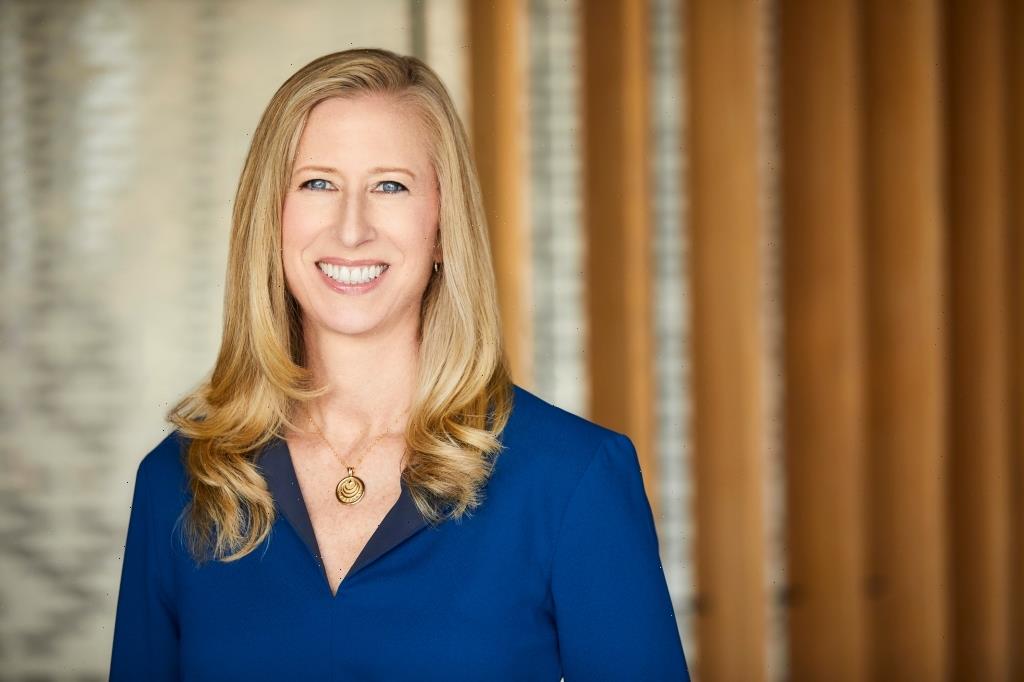Illustration: Jim PavlidisCredit:
To submit a letter to The Age, email [email protected]. Please include your home address and telephone number. No attachments, please include your letter in the body of the email.
Inflation debate
One doesn’t need recourse to politics to know the truth of Scott Morrison’s inelegant criticism of Anthony Albanese’s wages plan (“Morrison says Albanese’s wages stance could ‘precondition’ inflation”, The Age, 12/5). Temporary price pressures give way to permanent wage increases, followed by consequent price pressures, and on it goes. It has been thus since at least the Weimar Republic. It is made worse by increasing the wages of public servants (an economic transfer) or politically favoured groups of workers. And it always ends badly, as Albanese’s comrade Paul Keating once observed.
Douglas Shirrefs, Yea
Time to tighten our belts
If only life were so simple we could have wage rises without inflation and cheaper electricity by virtue of the wind and sun being free. We have just gone through a period of governments printing too much money and electricity generators overdoing their emissions and now we have to pay for it. But are we up to tightening our belts generally and also paying more for electricity? Yes we are, as there’ll be a lot more folk around with self resilience. Can’t have a rebound without it.
Gordon Thurlow, Launceston, Tas
Show some decency
A 5.1 per cent wage increase across the board would add to the inflationary spiral (“Labor softens call for hard figure on wage rise”, 12/5), but a flat increase of a dollar an hour for those on the lowest award rates would not. A decent society looks after the lowest paid, though we can question whether a society which sees elections as contests to see who can put as little as possible into the pot and who can take as much as possible out is decent.
Chris Curtis, Hurstbridge
Footing the bill
Apparently it is acceptable to pay billions on ripping up submarine contracts, give JobKeeper to companies that don’t need it, throw money around for pork-barrelling, run up a huge national debt and offer large stage-three tax cuts to the wealthy. However, a pay rise of $1 an hour to those on the minimum wage will bring the country to its knees. Really?
Dean Virgin, Strathmore
Pay rises for some
The AFR’s 2021 chief executive pay survey showed a jump in average remuneration of 24 per cent and annual bonuses soaring by 67 per cent. Yet a proposed 5.1 per cent minimum pay rise over an undetermined period is deemed inflationary. Do as I say, not as I do.
Dick Davies, North Warrandyte
They toiled for us
Over the course of six lockdowns, garbos, orderlies, cleaners, nursing aides and others toiled for us and risked their health for us. We cheered them on and banged pots in appreciation. Are we now going to deny them a $1.03 an hour pay increase? Put your arm around your mates and lift them up. That’s what we do.
Sean Geary, Southbank
Real wage growth
To those outraged by Albanese’s suggestion that there is a case for a wage increase to match the CPI, I wonder if they have considered that their “economically responsible” inverse response would require ever-decreasing real wages?
John Hanstein, Black Rock
Cormann’s sensible designs
Your correspondent (Letters, 12/5) should listen to what Mathias Cormann actually said about Coalition wages policy in 2019. Speaking about wages growth in the context of low inflation and declining unemployment, he said wages needed to “adjust in the context of economic conditions” to support employment growth. That, he said, was “a deliberate design feature of our economic architecture”. That does not amount to “low wage growth is a deliberate feature of our economic architecture”.
Michael Angwin, Surrey Hills
THE FORUM
Workers suffering
While the political class and some of the media approach the election campaign with all the superficiality of an episode of Big Brother, workers in our health services continue to be overwhelmed by an unrelenting caseload of COVID-19 patients (“Top doctor quits with warning of staff exodus”, 12/5). These workers are the real heroes of the COVID-19 pandemic. Politicians should be constantly reminding the public of the respect needed for the courage and dedication of COVID-19 health care workers and support this with their unequivocal prioritisation to do whatever it takes to give them some relief. For two solid years these workers have put their lives on hold and their lives at risk to save others. Mass burnout now prevails while their calls for urgent relief go unanswered by those who have the power to help. Neither of the major political parties have adequately acknowledged these workers. Give them what they need to get some relief, we all owe it to them.
Paul Miller, Box Hill South
Our hero
I can honestly say that my wife, Reva, is alive today due to the treatment of Professor John Wilson. He has managed to drag her back from death’s door on multiple occasions. We are both very sad to hear that he has resigned from his position as head of the Cystic Fibrosis Unit at the Alfred Hospital, which has had world-leading results in helping persons with cystic fibrosis live the longest average lifespans, excelling in infection control and treatment.
People with cystic fibrosis are prone to severe respiratory infections which are highly infectious to others with cystic fibrosis. People with cystic fibrosis were once accommodated in single rooms to reduce the spread of these infections but today the hospital considers that too expensive and many find themselves in shared rooms with other people with respiratory infections. Procedures that enable better treatments such as the insertion of PICC lines are being denied as “too expensive”. Patients are often left in unclean beds and nursing staff are overtaxed. The decline is long evident, COVID was just the last straw.
Tim Blowfield, Melbourne
Skills lost
Architect Michael Smith laments the government’s 40 per cent cut to the Office of the Victorian Government Architect (Comment, 11/5). I’m surprised such an office still exists, as both sides of politics continue their neoliberal assault on government technical expertise. Cutting direct expenditure on technical advice and oversight means the public pays for it with poor learning environments, stressful workplaces, poor health outcomes and poor amenity.
Smith could have been talking about almost any state service. In my own area of technical interest, road safety, government expertise is long gone and parliamentarians show no interest in why the road toll has started rising.
Rob Morgan, Bulleen
Unthinkable switch
Quantum mechanics and the multiverse? (Letters, 12/5) The fabric of time and space around here has started to unravel following an unexpected occurrence: I am considering supporting the Coalition at this election in response to Labor’s Suburban Rail Loop. The loss of green space, the embedded energy, commercial disruptions, compulsory acquisitions and expanses of concrete prompt me to vote to ″save our suburbs″. My nightmares have never contained such words, but anyone who has lived in Greater London will know that buses bring the city to life – frequent, flexible, responsive, while being a social leveller.
Ronald Elliott, Sandringham
Fix housing supply
As a licensed estate agent for the past 57 years I have witnessed numerous attempts by governments of all persuasions to ease the chronic shortage of accommodation – both rental and home ownership. I cannot recall when the problem has been as dire as at present. First home owner grants, shared equity and deposit guarantee schemes all have one thing in common; they stimulate demand and contribute directly to pushing up prices. Social housing supply has been stagnating from years of government neglect further exacerbating the problem.
What we need is a well considered plan by state and federal governments in concert to improve supply; something like the “Housing Commission” of the 1950s. Until we increase supply all the handouts in the world will not improve the lot of so many aspiring homeowners.
Adrian Jones, Mount Martha
Quit Kirribilli
Could the two (Sydneysider) federal leaders agree on at least one thing that would demonstrate that Australia is a grown-up and confident country? Namely, whoever wins the election will commit to making Canberra the de facto capital of Australia to add to its de jure status by making The Lodge their sole residence and to relinquish Kirribilli House as a prime ministerial abode.
Ditto for the governor-general solely using Government House.
Carlo Ursida, Kensington
Promise wasted
Jessica Irvine’s two page spread in The Age (“Ditched or delivered? The major 2019 election promises revisited”, 11/5) looked promising, and did provide some useful information and analysis. However, it compared apples and oranges. While it is valid to assess the government’s record on implementing its promises, and to assess the changes in the opposition’s policies, it is not appropriate to treat the two as comparable. Of course, the opposition’s policies can’t be delivered; and are likely to be amended after they were rejected by the electorate. This could be the subject of a separate article.
Further, as only a few of the government’s promises were considered, it didn’t provide a comprehensive analysis of its performance. Promises such as establishing a federal ICAC and protecting LGBTQ students weren’t mentioned; neither were the many slush funds such as commuter car parks. Is it too much to hope for detailed analysis that doesn’t confuse balanced reporting with false equivalence?
Gill Riley, Doncaster East
Choice is yours
I am amazed that so many people complain about the “how to vote cards” political parties offer at election time. It is not compulsory to follow those suggestions. I have for years made my own “card” for preference allocation based on what the candidates offer.
Mannie Kambouris, Oak Park
China rethink worthy
The Coalition says the independents who attended a charity gala have “questions to answer”. That’s rich coming from the government that has fallen just short of declaring war on China as a major plank of its “khaki” election platform. The independent candidates said they wanted to change the relationship between China and Australia, which from whatever way you look at it, would be to Australia’s benefit. Our balance of trade and national security depend, to a very large extent, on the benevolence of Beijing. True, China is in the thrall of an authoritarian regime – everything connects back to the CCP – which makes diplomacy and connection all the more difficult, but to use the obvious differences as a political whip does a disservice to both cultures.
John Mosig, Kew
Trapped by gilt
What does the photo of the three royal figures signify? (“An heir of transition as Prince steps up”, 12/5.) Surrounded by the gilt and the trappings of the past 500 years the participants look bogged down by the weight of trivia. Or perhaps it could be a scene for a recent production from a Gilbert and Sullivan opera? It’s been said that people/ countries who live in the past are doomed to remain in the past. This may suit a decaying country in northern Europe: it has no place in a modern country like Australia.
Venise Alstergren, Toorak
All right Jack?
So Victoria wants to ban the swastika symbol? Why not kill two birds with the one stone, and ban the Union Jack on the Australian flag. The Union Jack is a symbol of the British Empire, which was founded on pillage, rape, murder, racism, where black people were concerned. Why should Indigenous Australians respect the Australian flag, while it contains a symbol of the horrors of conquest of the original inhabitants of this land?
Richard Ryan, Summerland Point, NSW
Symbolic gesture
Many years ago, as a university student of politics, I was reading a proscribed text on a tram. I received some odd stares from fellow passengers and, as she was leaving, one woman hissed at me “You should be ashamed of yourself!” The book was a classic about Germany and the causes of World War II by esteemed historian William Shirer. On its cover was a swastika. Symbols can carry many connotations, good and bad, for many people to “own”. Let us be careful about punishing those who do not misappropriate them for the wrong reasons. Some people find the cross offensive and the pentangle and so on. Some use the Australian flag as an excuse for unacceptable behaviour. Glad I was not carted off by police as a dangerous reactionary!
R McIntosh, Camberwell
Cry no more
Thank you to your correspondent (Letters, 12/5) for his proposal for a lachrymose letter ladder. I too am a regular letters reader and sometime contributor. I was halfway through a letter I proposed to send using the opening words “I read the article through a veil of tears”. He has made me rethink my sentiments!
Linda Fisher, Malvern East
Time for action
A year’s supply of tissues for the most copiously weeping correspondent? Perhaps words of encouragement and motivation might be more appropriate. Weeping on the sidelines serves no purpose. When change is necessary, it starts with the actions of an individual. If you want to know who, look in a mirror. As the old adage says, decisions are made by those who turn up.
Helen Moss, Croydon
And another thing
Illustration: Matt GoldingCredit:
Inflation
Isn’t it strange how massive pay rises for politicians and executives help the economy, but when it comes to ordinary workers, modest pay rises will cause run-away inflation and destroy the economy.
Breda Hertaeg, Beaumaris
Scott Morrison expects the sky to fall if the lowest-paid Australians receive an extra 5.1 per cent. But he doesn’t foresee any problems when the rich people start enjoying his tax cut from July 1.
Tim Durbridge, Brunswick
Some perspective is needed on a 5.1 per cent increase in the minimum wage. As it is $20.30 an hour that would increase it by $1. At that rate the price of a $5 coffee would rise by 25 cents.
Michael McKenna, Warragul
If a 5.1 per cent increase in the minimum wage will impose such a cost to employers and contribute to even more inflationary pressures it only highlights how many low paid workers have been created in the past nine years.
Phil Alexander, Eltham
Federal election
So it appears that Scott Morrison, can forecast “chaos, risk, uncertainty and spiralling inflation” if Labor wins the election. Can he also tell us the Tattslotto numbers for the next big prize?
Tony Andreatta, Kew
Unfortunately the government let China have its way with the Port of Darwin and Solomon Islands. But thank goodness they protected us from the Biloela family.
Jerry Koliha, South Melbourne
Good to see Matthew Guy seeks to boost funding for Victoria’s IBAC (“Guy mirrors Albanese on poll playbook”, 12/5). Now if Guy could just persuade that Morrison chap that a federal IBAC, armed with strong powers, is also a priority.
Brian Kidd, Mt Waverley
Furthermore
Ange Postecoglou … a fantastic effort and well-deserved congratulations.
Michael McKenna, Warragul
And when did “unbelievably” replace “very”?
Simon Thornton, Alphington
Gay Alcorn sends an exclusive newsletter to subscribers each week. Sign up to receive her Note from the Editor.
Most Viewed in National
From our partners
Source: Read Full Article




